On the morning of October 8, the Belt and Road University Presidents Forum & Conference on Universities and Sustainable Development, co-hosted by Chongqing University and the Chongqing Science and Technology Bureau, took place in Chongqing. The event was attended by Ma Zhen, Member of the Party Group of the Chongqing Municipal Government, Vice Mayor, and Secretary of the Party Working Committee of Western Science City and Chongqing High-tech Zone; Ling Fan, Deputy Secretary General of the Chongqing Municipal Government; Sun Jian, Deputy Director-General of the Department of International Cooperation of the Ministry of Science and Technology; Tian Ying, Deputy Director of Chongqing Science and Technology Bureau; as well as presidents and representatives of universities from countries participating in the Belt and Road Initiative, and domestic universities. Chongqing University Party Secretary Shu Lichun, President Wang Shuxin, and nearly 200 representatives, including heads of relevant departments, faculty members, and international students, were also present.
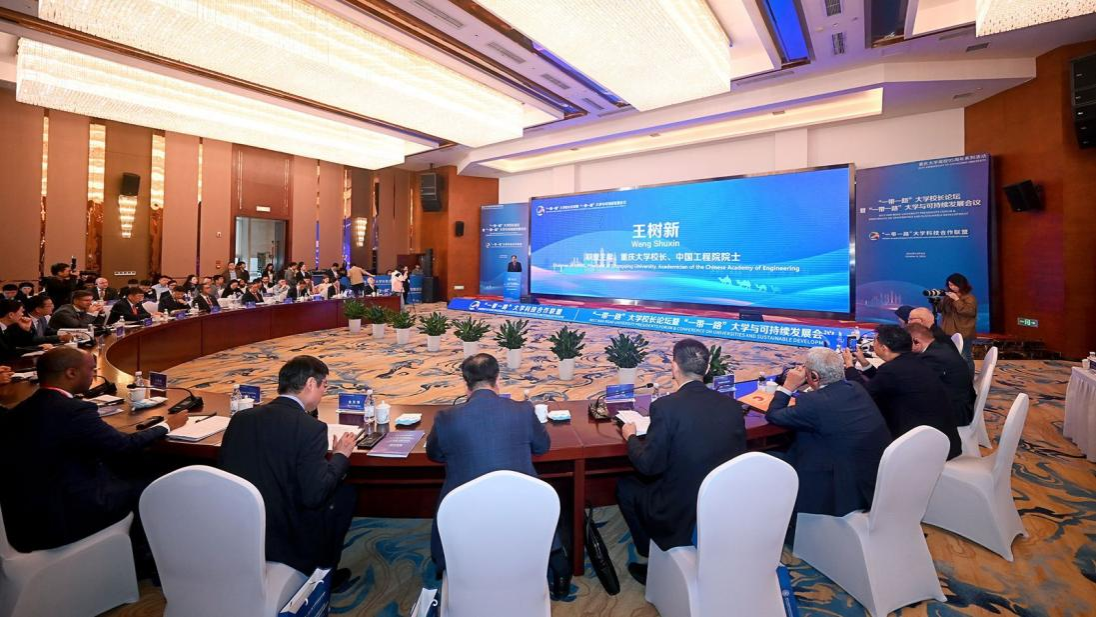
Conference venue
Participants engaged in discussions around two main topics: The Role and Responsibility of Universities in Promoting Sustainable Development Along the Belt and Road; Scientific and Technological Innovation and New Quality Productive Forces: Opportunities and Challenges for Belt and Road Universities.The discussions focused on how universities can address global challenges, advance sustainable development, and foster technological innovation and the growth of new forms of productivity, all while promoting broader and deeper global university cooperation.
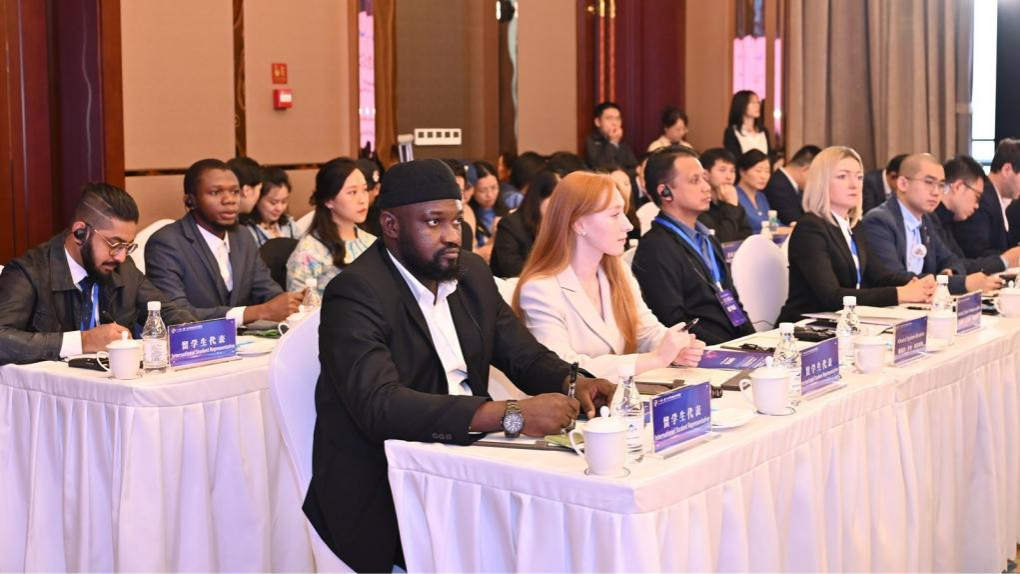
Conference venue

Group Photo of Conference Participants
Responsibility and Innovation: Injecting New Momentum into Global Sustainable Development
In his opening remarks, Ma Zhen noted that in recent years, Chongqing has steadily advanced technological innovation cooperation under the Belt and Road Initiative, with increasing partners, deepening cultural and scientific exchanges, and accelerating international joint research and technology transfer. He highlighted that Chongqing has established scientific cooperation with 63 countries, facilitating over 30,000 exchanges of researchers and completing more than 50 intergovernmental science and technology cooperation projects. More than 30 professional technology transfer institutions have been set up.
Ma emphasized that this year marks the beginning of the Belt and Road Initiative’s next golden decade, with universities playing a critical role as sources of innovation and hubs for talent. Chongqing, leveraging this forum, aims to further strengthen collaboration with domestic and international universities, accelerating the creation of a Belt and Road science and technology innovation cooperation zone that serves the China’s west, supports the nation, and engages the world. Together, these efforts will deepen the Belt and Road Initiative’s impact.
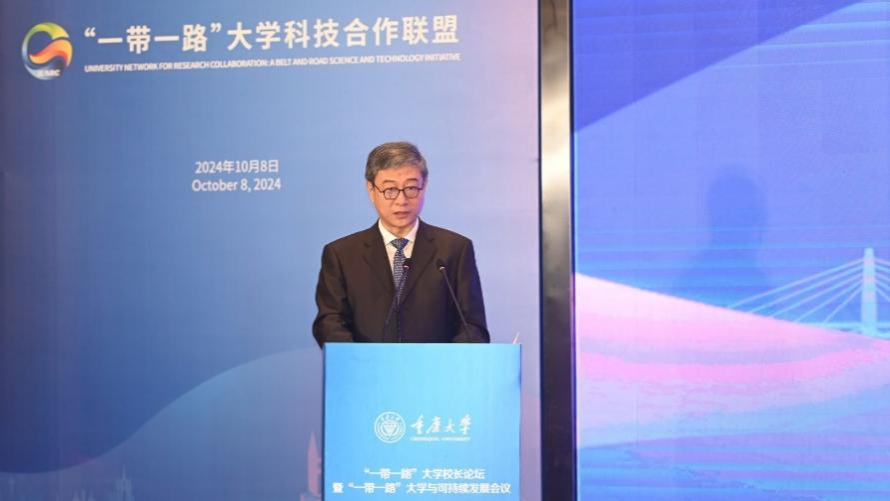
Remarks by Ma Zhen, Member of the Party Group of the Chongqing Municipal Government, Vice Mayor, and Secretary of the Party Working Committee of Western Science City and Chongqing High-tech Zone
Sun Jian, Deputy Director-General of the Department of International Cooperation of the Ministry of Science and Technology, highlighted in his speech that "promoting technological innovation" is one of China's eight actions to support high-quality Belt and Road development. Universities, as key drivers of innovation, should apply more cutting-edge scientific achievements to real-world challenges, contributing to global sustainable development goals. He remarked that the forum provides an important opportunity for global universities to deepen scientific cooperation and promote sustainable development.
Sun stressed that innovation efforts worldwide must join forces to tackle global challenges collectively. In this era of open collaboration, technological innovation is not a "solo performance" by any one country but a "symphony" played by all. He encouraged participants to engage in meaningful exchanges and forge a consensus to collectively advance the Belt and Road’s innovation and sustainability goals.
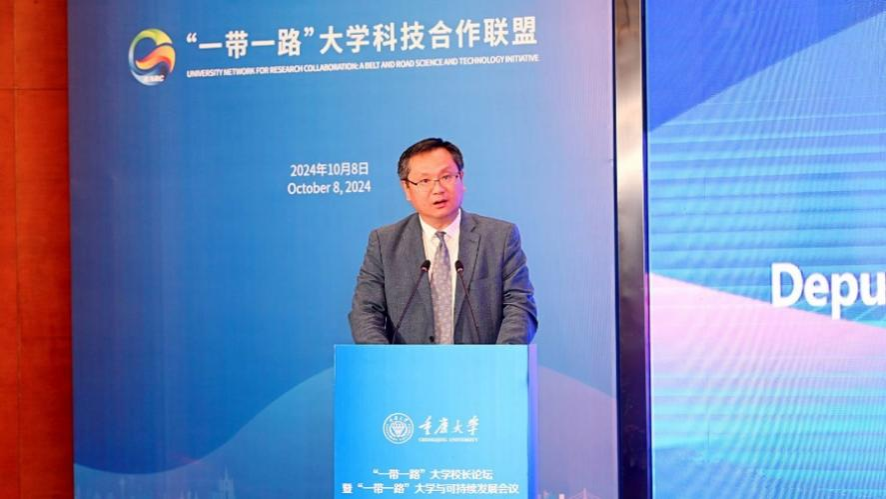
Remarks by Sun Jian, Deputy Director-General of the Department of International Cooperation of the Ministry of Science and Technology
Wang Shuxin, President of Chongqing University, Academician of the Chinese Academy of Engineering, and Chair of the University Network for Research Collaboration: A Belt and Road Science and Technology Initiative (iUNRC), noted that universities are indispensable in advancing sustainable development by driving knowledge creation and technological transformation. He added that Chongqing University has long been committed to promoting international cooperation in science and technology. Last year, the university launched the iUNRC, which now includes 15 universities from 11 countries. Significant progress has been made in research collaboration, talent exchange, and the commercialization of research outcomes.
Wang expressed hope that this meeting would strengthen cooperation between Belt and Road universities, accelerate the application and commercialization of scientific achievements, and foster new forms of productivity, thereby providing innovative solutions for global sustainable development and ushering in a new phase of high-quality development under the Belt and Road Initiative.
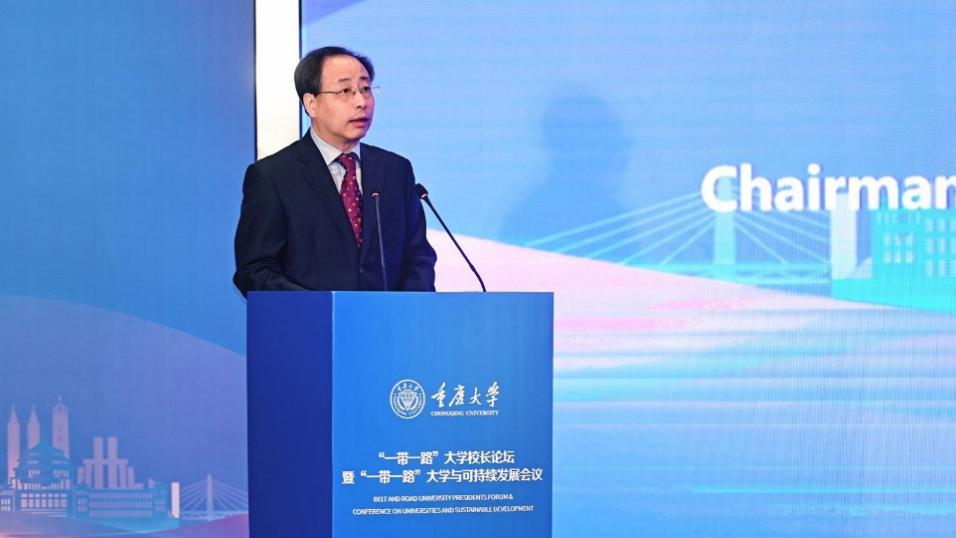
Remarks by Wang Shuxin, President of Chongqing University, Academician of the Chinese Academy of Engineering, and Chair of the University Network for Research Collaboration: A Belt and Road Science and Technology Initiative (iUNRC)
Dialogue and Cooperation: Domestic and International Universities Map Out Their Strategies
"Universities are crucial hubs for knowledge creation, research, and innovation, playing a vital role in promoting sustainable development." At the conference, Bayissa Leta Dano, President, Ambo University, Ethiopia, focused on aspects such as education and research, policy recommendations and advocacy, capacity building, and social participation. He elaborated on the methods through which universities can promote sustainable development and provided an in-depth analysis of how universities can integrate local community development into the overall sustainable development framework.
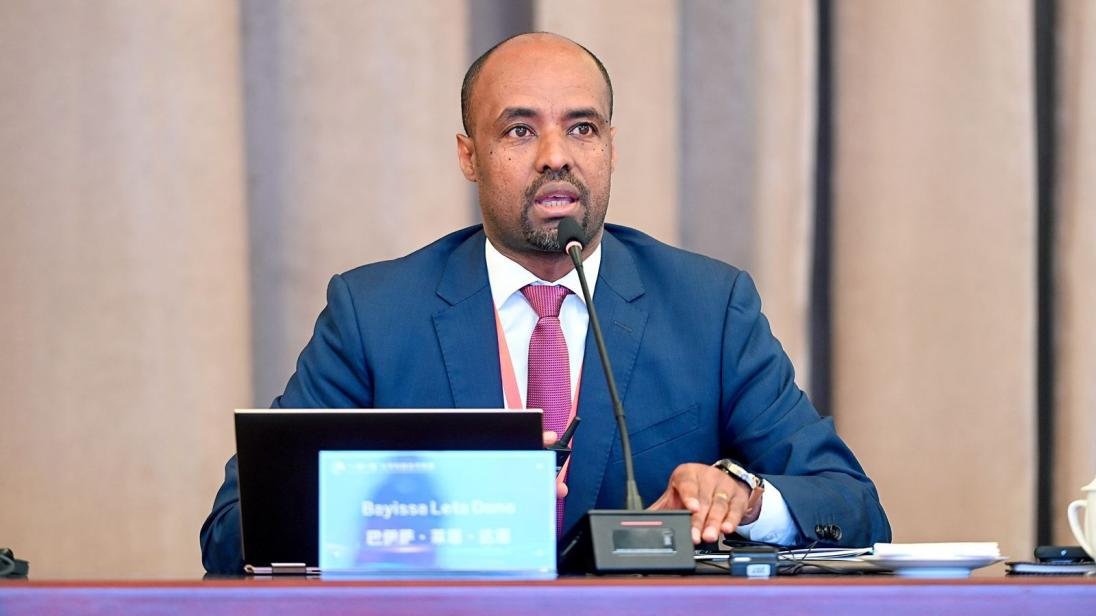
Presentation by Bayissa Leta Dano, President, Ambo University, Ethiopia
Andrei D. Karol, Rector, Belarusian State University, Belarus, used his university's development as an example to discuss how universities should identify their roles in the era of globalization and promote scientific and technological innovation, as well as international exchange and cooperation. He noted that Belarusian State University has signed cooperation agreements with over 600 foreign universities and research and innovation organizations from 59 countries, and has jointly established 12 higher education institutions, national academies of sciences, and national libraries.
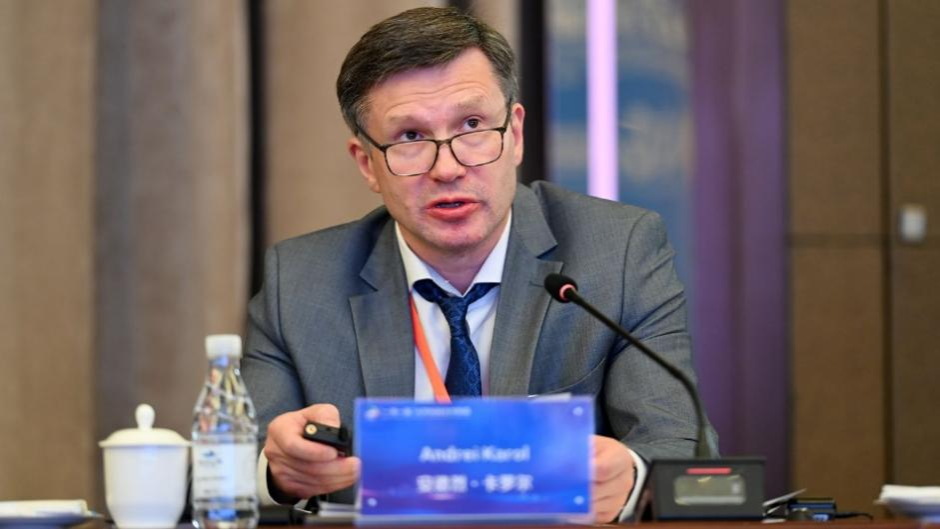
Presentation by Andrei D. Karol, Rector, Belarusian State University, Belarus
Song Baowei, Academician of the Chinese Academy of Engineering and President of Northwestern Polytechnical University, introduced the university's specific practices in contributing to the Belt and Road Initiative. Focusing on three dimensions—positioning, role identification, and actionable measures—Song analyzed how universities can collaboratively advance high-quality development of the Belt and Road Initiative. He emphasized that positioning should be elevated, actively building a new landscape of international education; role identification must be precise, accurately addressing the new demands of the Belt and Road; and actionable measures should be practical, implementing concrete cooperative actions through various approaches.
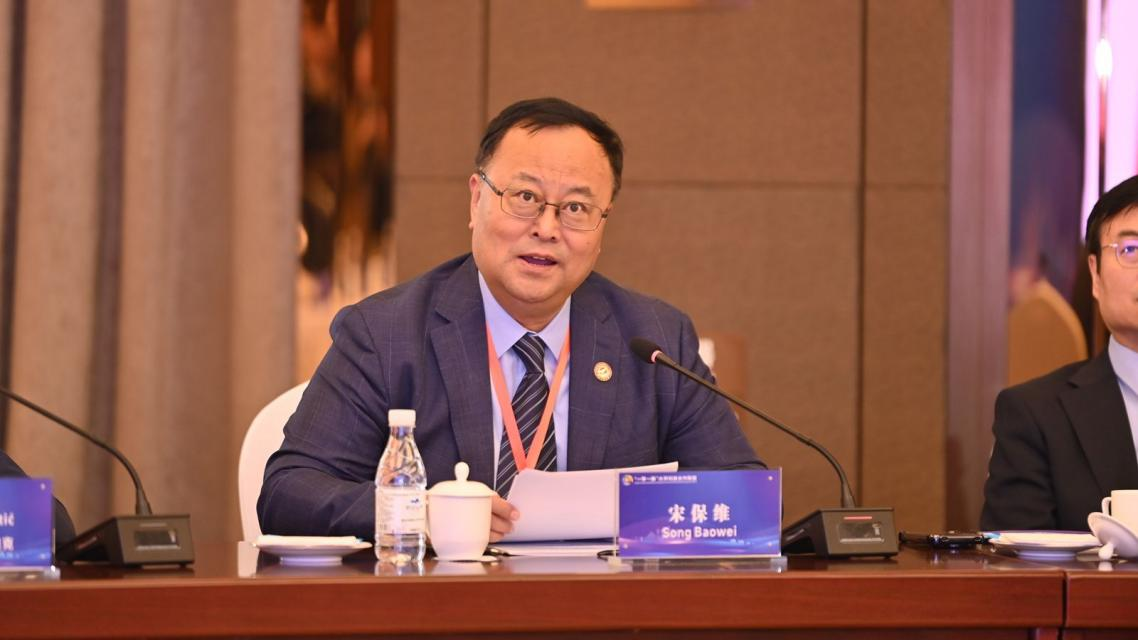
Presentation by Song Baowei, Academician of the Chinese Academy of Engineering and President of Northwestern Polytechnical University
Tang Hongwu, Academician of the Chinese Academy of Engineering and President of South China University of Technology, articulated the university's philosophy, initiatives, and achievements in promoting high-quality development of the Belt and Road Initiative. He suggested leveraging the advantageous resources and innovative elements of Belt and Road countries with new ideas to facilitate precise, refined, and practical interactions. He also emphasized the importance of establishing strong connections between China and the world through active bilateral and multilateral cooperation.
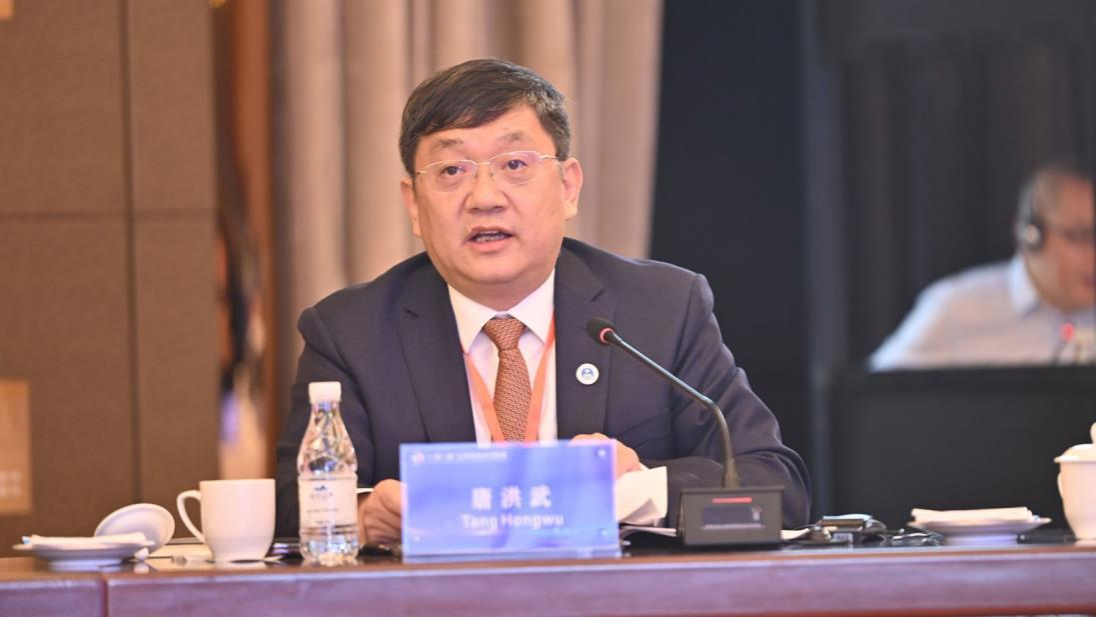
Presentation by Tang Hongwu, Academician of the Chinese Academy of Engineering and President of South China University of Technology
Jin Donghan, Academician of the Chinese Academy of Engineering and President of Tianjin University, shared how the university is leveraging new engineering disciplines to cultivate outstanding innovative talent, thereby contributing to high-quality development of the Belt and Road Initiative with the "Tianjin University Approach." He stated that Tianjin University will adopt a more proactive and pragmatic stance, deeply integrating into the Belt and Road Initiative to promote resource sharing, talent co-cultivation, academic collaboration, and cultural resonance, ultimately enhancing high-quality development of the initiative through the cultivation of high-caliber talent.
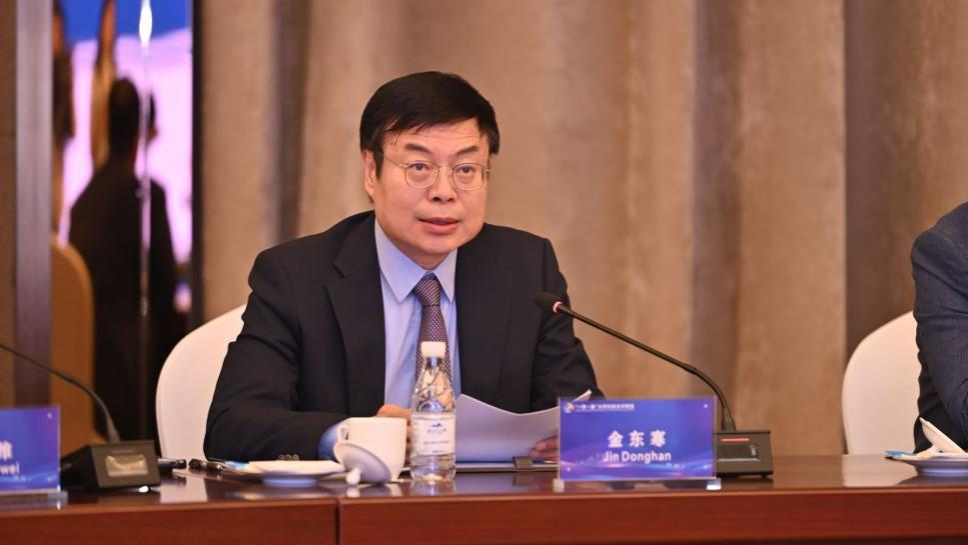
Presentation by Jin Donghan, Academician of the Chinese Academy of Engineering and President of Tianjin University
Hazri Kifle, Vice Chancellor, Universiti Brunei Darussalam, shared the university's research and innovations in areas such as carbon capture, utilization, and storage technologies, biodiversity and herbal medicine, and digital transformation. He also proposed specific measures for achieving future sustainable development through innovation.
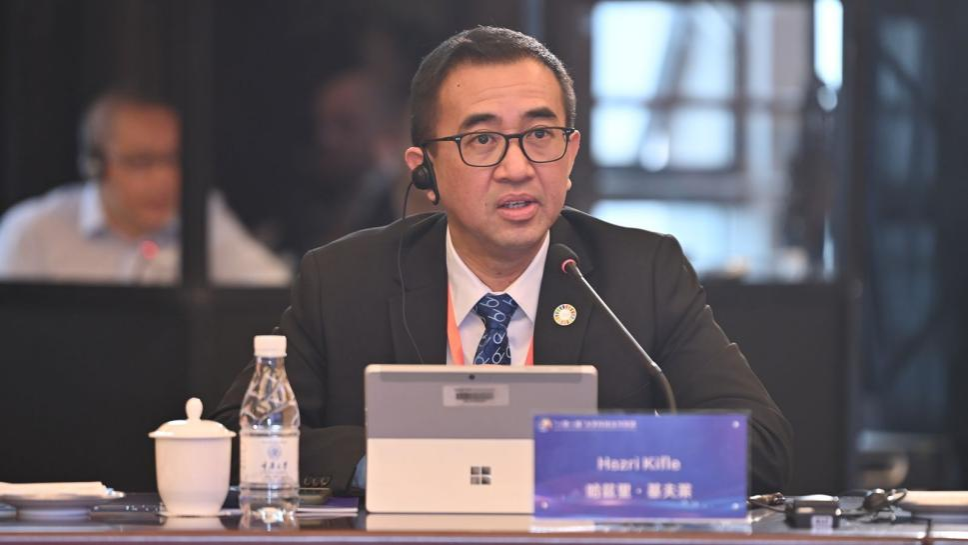
Presentation by Hazri Kifle, Vice Chancellor, Universiti Brunei Darussalam
How can we understand sustainable development and the Belt and Road Initiative? What is the concept of sustainable development? What constitutes a sustainable university? Veselin Vukotić, Rector, University of Donja Gorica, Montenegro, elaborated on the essence and operational model of iUNRC, as well as the conceptual and methodological platforms of iUNRC's research network.

Presentation by Veselin Vukotić, Rector, University of Donja Gorica, Montenegro
"Universities are central hubs for the development of educational and technological talent, playing a core role in promoting the openness of education." Wang Shuxin, focusing on the core functions of universities, introduced Chongqing University’s practical approaches to deeply integrate into the high-quality development of the Belt and Road Initiative. He suggested taking the establishment of a Belt and Road Science and Technology Innovation Cooperation Zone as an opportunity to accelerate the construction of a new system for the openness of education, continuously stimulate new momentum for scientific and technological innovation cooperation, foster a new ecosystem for talent exchange and co-cultivation, and actively explore the establishment of an integrated cooperation model for education and technology talent.
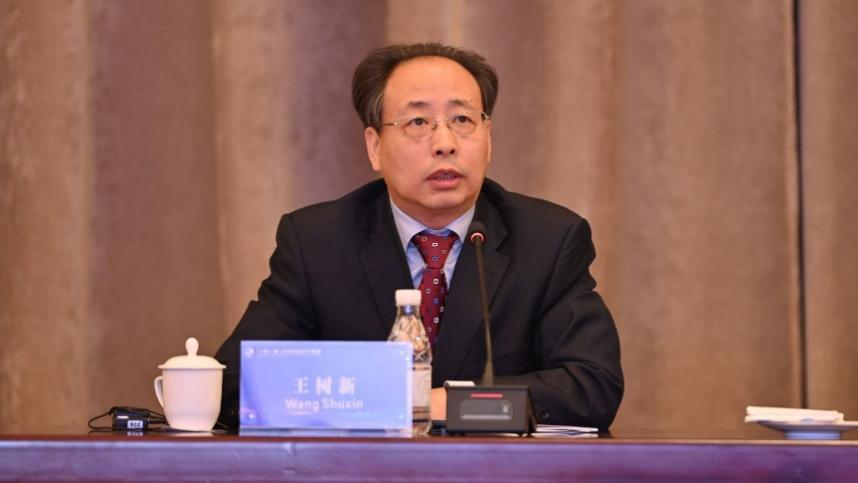
Presentation by Wang Shuxin, President of Chongqing University, Academician of the Chinese Academy of Engineering, and Chair of the University Network for Research Collaboration: A Belt and Road Science and Technology Initiative (iUNRC)
Tin Maung Tun, Rector, University of Yangon, Myanmar, analyzed the opportunities for universities in contributing to the Belt and Road Initiative: promoting collaboration and cooperation in technology and research innovation among universities; ensuring the sharing of resources, data, and talent through partnerships to accelerate the innovation process; and broadening research fields such as artificial intelligence, biotechnology, renewable energy, energy storage, and applied chemistry.
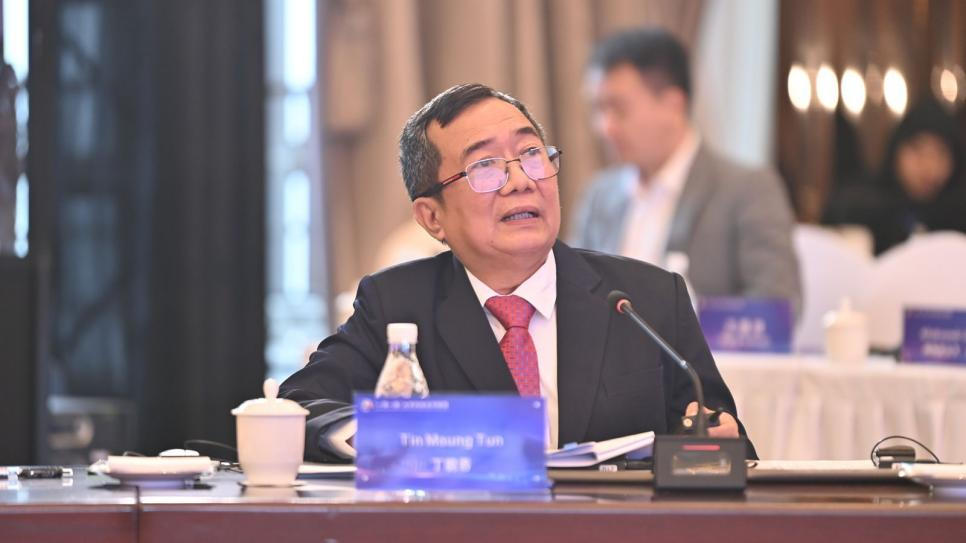
Presentation by Tin Maung Tun, Rector, University of Yangon, Myanmar
Lv Peiming, Executive Vice President of Tongji University, introduced the university's progress in areas such as the construction of large research platforms, breakthroughs in basic research, tackling major key core technologies, and action plans for innovative development powered by artificial intelligence. He stated that Tongji University, in response to the significant changes in global technology, economy, and society, will focus on a future development philosophy that emphasizes digitalization, sustainability, and integration, and will consolidate, adjust, transform, and enhance key tasks, major projects, and special assignments.
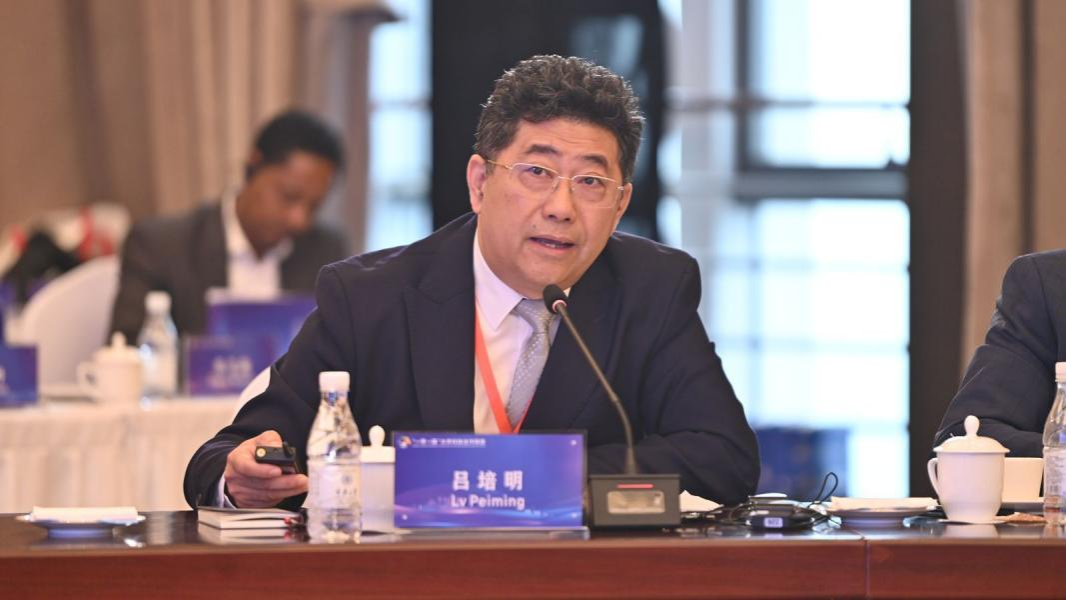
Presentation by Lv Peiming, Executive Vice President of Tongji University
Smirnov Nikita, Deputy Vice-Rector, Far Eastern Federal University, Russia , suggested that universities should develop interdisciplinary projects focused on implementing sustainable development goals, addressing issues such as ecology, social justice, and economic stability. He emphasized the need to strengthen international cooperation and expand partnerships with universities and research centers in Belt and Road countries, while also promoting research and innovation.
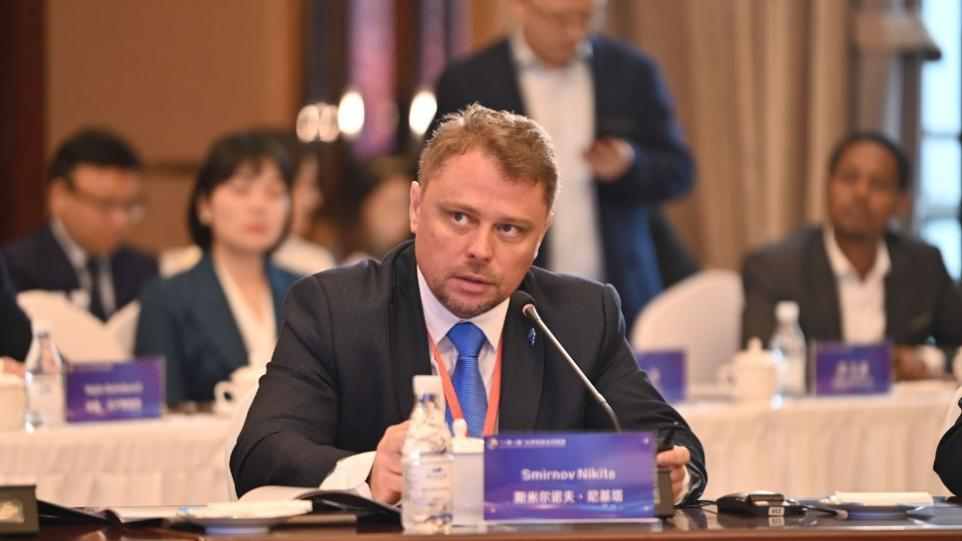
Presentation by Smirnov Nikita, Deputy Vice-Rector, Far Eastern Federal University, Russia
Tsolmonbaatar Danjkhuu, Vice President, Mongolian University of Science and Technology, Mongolia, highlighted the university's exemplary practices and pointed out that universities should take on key roles and responsibilities in education and capacity building, research, and innovation to promote sustainable development along the Belt and Road. He emphasized that as centers for research, innovation, and knowledge dissemination, universities must actively innovate, collaborate, and drive transformation, facilitating the sharing of best practices and sustainable technologies to advance the sustainable development of the Belt and Road Initiative.
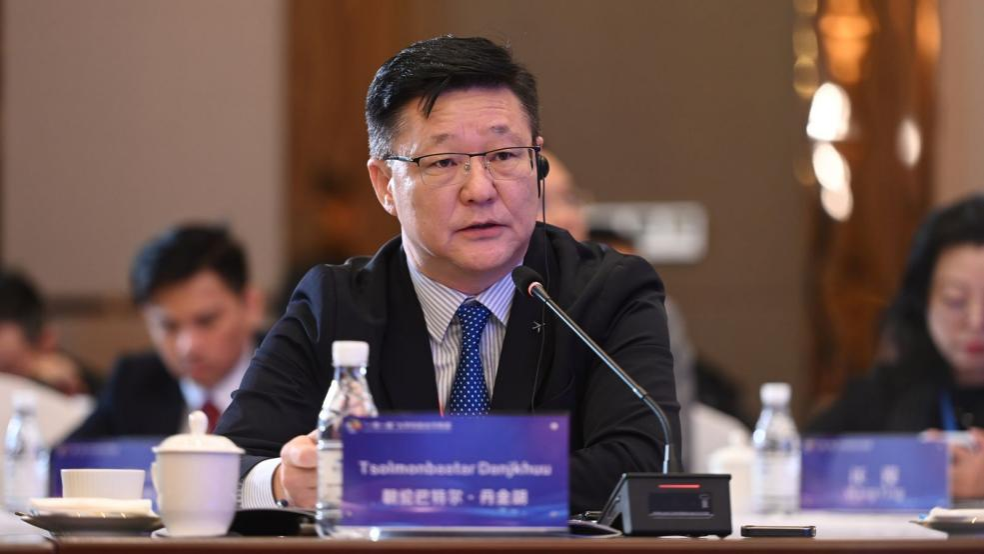
Presentation by Tsolmonbaatar Danjkhuu, Vice President, Mongolian University of Science and Technology, Mongolia
Károly Pető, Vice Rector, University of Debrecen, Hungary, introduced the university's active promotion of the construction of innovation centers, a high-tech building for the medical school, and a national pilot base for industry-university-research collaboration. He described the establishment of a four-helix innovation model involving "universities, enterprises, financial institutions, and local governments," which facilitates the organic connection and deep integration of the education chain, talent chain, innovation chain, and industrial chain.
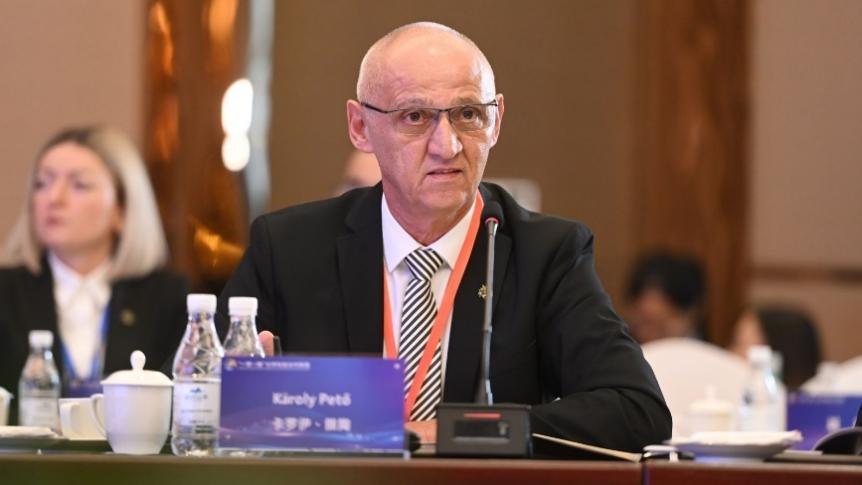
Presentation by Károly Pető, Vice Rector, University of Debrecen, Hungary
Habibah A Wahab, Deputy Vice-Chancellor, Universiti Sains Malaysia, outlined the university's four key areas of strength: satellite technology, cancer research, semiconductors, and sustainable development. She particularly highlighted the university's transformative innovations in the semiconductor field, providing valuable insights for promoting sustainable development through technological innovation.
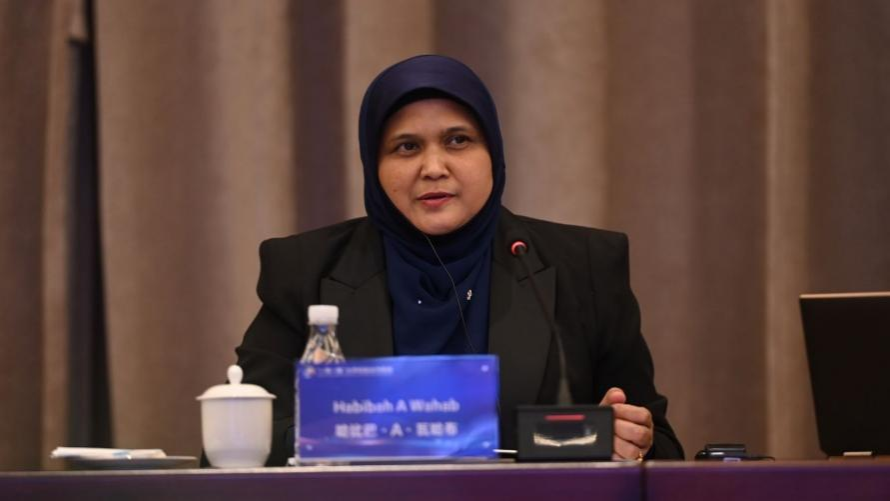
Presentation by Habibah A Wahab, Deputy Vice-Chancellor, Universiti Sains Malaysia
During the conference, representatives of faculty and students actively asked questions about how to promote innovation in green technology and smart manufacturing through multinational cooperation among universities, as well as the unique challenges and opportunities faced by developing countries in the sustainable development process. The attending university presidents shared their institutions' philosophies, practices, and future perspectives from a globalized and international standpoint.
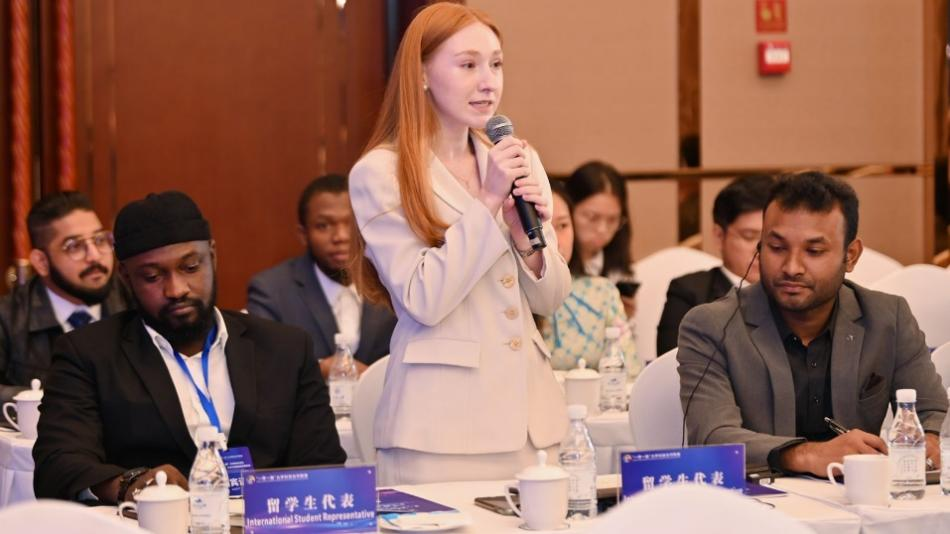
Representatives of faculty and students engaged in a Q&A session with the guests
Deng Shaojiang, Vice President of Chongqing University, presided over the forum's opening ceremony, while the discussion and interactive Q&A session were led by Habibah A Wahab, Deputy Vice-Chancellor, Universiti Sains Malaysia.
In the afternoon, the Second Council Meeting and Thematic Working Group Meeting of the University Network for Research Collaboration: A Belt and Road Science and Technology Initiative (iUNRC) was held, summarizing iUNRC's progress in 2024 and outlining the work plan for the upcoming year. Three new member institutions—Northwestern Polytechnical University, University of Yangon, and University of Debrecen—were officially awarded the iUNRC member plaque on-site
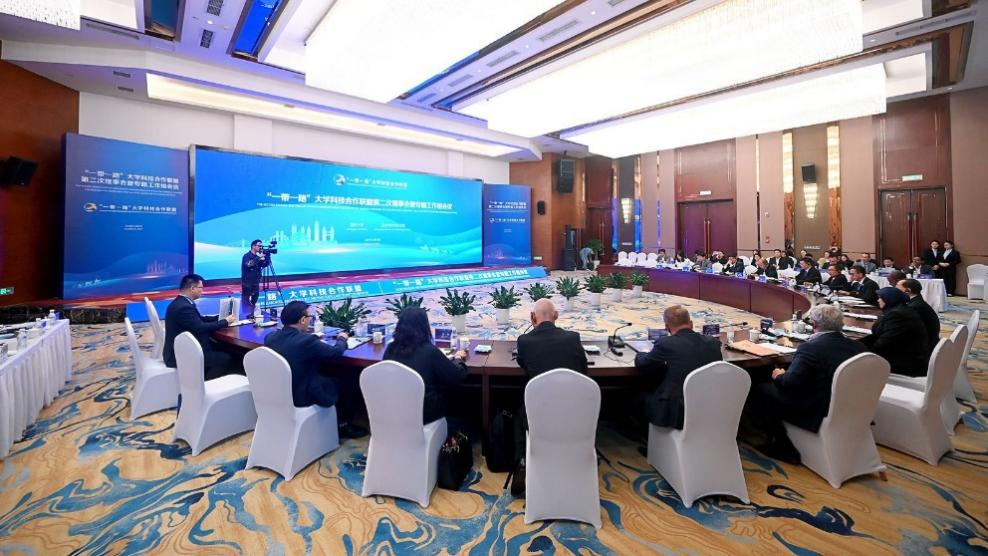
iUNRC conference venue
